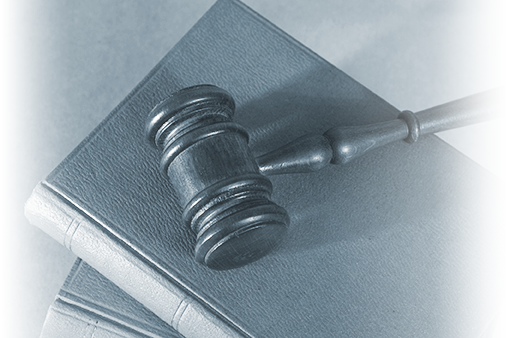Litigation
We specialize in litigation and have deep experience in representing our clients in regional courts as well as in matters that reach the Israeli Supreme Court.

A lawsuit begins by filing a statement of claim.
The plaintiff approaches the court and files a statement of claim against the defendant, indicating his cause of action against the defendant.
In most cases, a monetary charge will form the basis of the lawsuit. The plaintiff will demand that the defendant pay him a sum of money.
Upon filing the statement of claim, the plaintiff has a duty to provide the defendant with the statement of claim. Obviously, until the plaintiff provides the defendant with the statement of claim, there is no duty whatsoever on the defendant regarding the lawsuit since he is not aware that it had been filed.
The plaintiff approaches the court and files a statement of claim against the defendant, indicating his cause of action against the defendant.
In most cases, a monetary charge will form the basis of the lawsuit. The plaintiff will demand that the defendant pay him a sum of money.
Upon filing the statement of claim, the plaintiff has a duty to provide the defendant with the statement of claim. Obviously, until the plaintiff provides the defendant with the statement of claim, there is no duty whatsoever on the defendant regarding the lawsuit since he is not aware that it had been filed.
Upon delivering the statement of claim to the defendant, he has a duty to file a statement of defense with the court within 30 days. Should he fail to do so, he shall be deemed to have admitted to the cause of action and the plaintiff shall be entitled to a judgment in his favor for the full amount of his lawsuit.
After filing the statement of defense, the lawsuit advances to the next stage. A hearing will be scheduled before a judge who will determine a date for a preliminary hearing of the case by the parties.
The preliminary proceedings in the case will usually consist of ordering the parties to disclose to the other party all of the documents in their possession and ordering the parties to answer questions referred to them by the other party.
In addition, the judge will order the parties to file an affidavit of evidence in chief. An affidavit of evidence in chief is actually the testimony of a witness submitted in writing.
In the next stage, the parties will attend a preliminary hearing to be held before the court. At this hearing, the judge will seek to advance the case from a technical aspect and will attempt to cause the parties to reach a compromise. If the parties do not reach a compromise, the case will be scheduled for an evidence hearing.
The preliminary proceedings in the case will usually consist of ordering the parties to disclose to the other party all of the documents in their possession and ordering the parties to answer questions referred to them by the other party.
In addition, the judge will order the parties to file an affidavit of evidence in chief. An affidavit of evidence in chief is actually the testimony of a witness submitted in writing.
In the next stage, the parties will attend a preliminary hearing to be held before the court. At this hearing, the judge will seek to advance the case from a technical aspect and will attempt to cause the parties to reach a compromise. If the parties do not reach a compromise, the case will be scheduled for an evidence hearing.
An affidavit of evidence in chief is actually the testimony of a witness submitted in writing.
The witness to should write down all the facts he saw and heard, these facts will be part of a comprehensive evidence in the case
The witness to should write down all the facts he saw and heard, these facts will be part of a comprehensive evidence in the case
The evidence hearing is a hearing in which the witnesses of each party are questioned about their affidavits. The defendant’s attorney will question the plaintiff’s witnesses and the plaintiff’s attorney will question the defendant’s witnesses.
At the end of the evidence stage in the case and after all of the witnesses have been questioned about their affidavits, the judge will order the parties’ attorneys to file their summaries in the case. First, the plaintiff’s attorney will file the summaries and thereafter, the defendant’s attorney will file the summaries.
At the end of the evidence stage in the case and after all of the witnesses have been questioned about their affidavits, the judge will order the parties’ attorneys to file their summaries in the case. First, the plaintiff’s attorney will file the summaries and thereafter, the defendant’s attorney will file the summaries.
The summaries are documents in which each party summarizes its version and supports it with evidence, as presented in court during the questioning stage and also presents legal evidence and arguments supporting his version.
After both parties have presented their summaries, the court will give its judgment in the case.
After receiving the judgment, the losing party has a right to appeal the decision of the court. In most cases, an appeal may be filed within 45 days from the date on which the judgment is given.
Ran Amram, Law Office & Notary in Israel
3 Hayezira St., Sh.A.P House, 16th floor,
Ramat Gan 5252141, ISRAEL
Tel. +972 37557655 | Fax. +972 37557656

